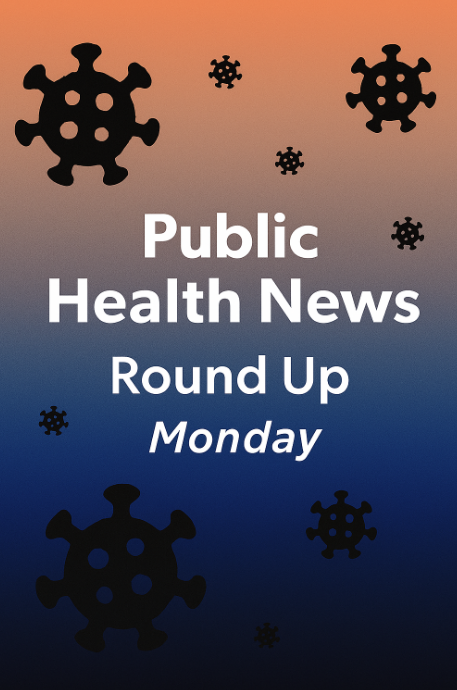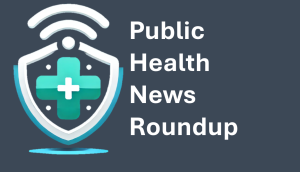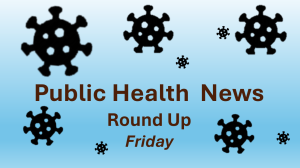
Public Health News Round Up, June 23, 2025
And yes, it’s hot out.
Recent Supreme Court Decisions: Implications for Public Health.
In a whirlwind of decisions, the U.S. Supreme Court recently released landmark rulings that touch on pivotal issues such as the rights of retailers under FDA tobacco regulations, standing in clean air cases, and personal jurisdiction in antiterrorism lawsuits. The Court’s interpretations, which at times break from traditional expectations, showcase an unexpected flexibility, stretching the legal boundaries of standing and regulatory challenges, and hinting at a complex legal landscape that could significantly shape future business and regulatory practices.
Are Super Gyms the Future of Health Care?
As gyms evolve into comprehensive wellness centers, offering integrated healthcare services for a premium, they are reshaping the traditional paradigms of health and fitness, raising questions about accessibility and the future of healthcare. With programs like Love.Life and Equinox’s EQX Optimize emerging as pioneers in this shift, the question remains: can this innovative but costly model provide a scalable solution to the broken healthcare system, or does it exacerbate existing inequities?
Precision Medicine Firm Caris Breaks Bio IPO Drought, Raising $494M for Cancer Analysis Tools
Caris Life Sciences is transforming cancer diagnosis and treatment with its pioneering use of AI and machine learning to harness vast molecular datasets, guiding targeted therapies through innovative platforms like MI Cancer Seek and Caris Assure. This bold approach not only positions Caris as a standout in a challenging IPO landscape but also hints at future expansions into broader therapeutic applications, sparking intrigue around personalized medicine’s next frontier.
The Path of Bird Flu
In “Science Quickly,” virus hunters tracking the H5N1 bird flu uncover its pervasive presence in migratory birds at Delaware Bay, underscoring the critical role wild birds play in spreading and evolving avian influenza globally. The research, involving innovative field methods and cooperation with ecologists, reveals both the genetic complexity of the virus and the urgent need for comprehensive surveillance to anticipate and mitigate potential risks to humans and domestic animals, provoking an essential reevaluation of how we monitor infectious diseases at the wildlife-human interface.
The Costs of Restricting Abortion? More Than $130 Billion Per Year.
The reversal of Roe v. Wade has sparked an economic crisis across the United States, costing the nation $133 billion annually and severely impacting labor force participation, particularly among Black women and Latinas, according to a compelling report by the Institute for Women’s Policy Research. This broad economic burden lays bare the consequences of abortion restrictions beyond individual states, laying a path of inquiry into the wider societal and economic costs associated with reduced access to reproductive healthcare.
Medicaid helps keep this toddler alive and at home. Federal cuts could put it all at risk.
In the heartwarming yet urgent narrative of Marely Chavarria Santos, who received a life-saving heart transplant as an infant, lies a powerful testament to the indispensable role of Medicaid for medically fragile children. As political pressures mount to slash federal funding for Medicaid, the story of Marely and her family unveils the precarious balance between policy decisions and the lives they impact, emphasizing the critical need for advocacy and awareness surrounding healthcare access for the most vulnerable.
Concerned father, statistician develops software to improve skills therapy for those with autism
Mark Ramos, a statistician and passionate father, has created a free software tool that enhances discrete trial training (DTT) for children with autism by employing Bayesian statistics to refine performance criteria. This innovative tool not only bridges the gap between observed performance and true skill mastery but also holds the potential to transform developmental therapies by ensuring more reliable outcomes—opening new doors for children like his daughter Mabel, who thrives on the dance floor to her ever-changing favorite songs.
Prioritizing prenatal care may decrease low birth weight outcomes
In The Gambia, a groundbreaking study by University of Notre Dame researchers reveals a critical causal link: increasing prenatal checkups significantly raises birth weights and decreases low birth weight prevalence among newborns, with four or more visits boosting birth weight by 2.5 ounces and reducing low birth weight incidence by 4.7%. This compelling evidence calls for sustained investments in comprehensive prenatal care, offering a vital pathway to enhance neonatal health in resource-limited settings and inspiring renewed policy focus across sub-Saharan Africa.



